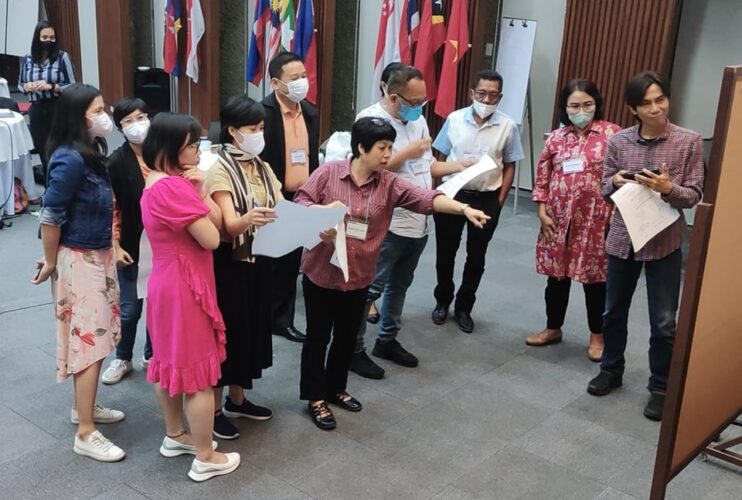Eighteen individuals representing seven Southeast Asian countries are learning how to develop and advance inclusive, integrated, and innovative public policies for family farming at the headquarters of the Southeast Asian Regional Center for Graduate Studies and Research in Agriculture (SEARCA) in Los Baños, Laguna, Philippines on 7-11 November 2022.
They are participants in the regional workshop Southeast Asian Learning Framework on Inclusive, Integrated, and Innovative Public Policy Cycles for Family Farming advanced by the Food and Agriculture Organization of the United Nations, led by its Regional Office for Asia and the Pacific (FAO RAP) with Procasur, a Latin American consortium, and SEARCA’s Training for Development Unit led by Dr. Nova A. Ramos.
The 18 participants represent civil society family farmer organizations, governments, and academe from Cambodia, Indonesia, Lao People’s Democratic Republic, Philippines, Thailand, Timor-Leste, and Vietnam. Their workshop is the first in-person regional knowledge event SEARCA has hosted in Los Baños since the COVID lockdown in 2019.
Dr. Glenn B. Gregorio, SEARCA Director, highlighted in his welcome remarks the significant roles that smallholder farmers and farming families play in our agri-food system, especially during the periods that there were mobility restrictions due to community lockdowns during the pandemic.
Mr. Pierre Ferrand, Agriculture Officer (Agroecology) and Regional Focal Point for Family Farming Agriculture and Food System Support Group of FAO RAP, asserted the agenda of the United Nations Decade of Family Farming (2019-2028) and shared the strides that the movement has gained since 2019, including development and establishment of national action plans on family farming.
Learning coordinator Dr. Luiz Caudio M. Campos of Procasur explained that the workshop aims to enhance the conceptual, methodological, and instrumental competencies of men and women leaders and technical teams from Southeast Asian family farming actors to influence the cycle of emergence, design, formulation, implementation, and evaluation of effective public policies that address the new challenges facing the rural sector and food systems.
(This article is originally published in SEARCA Website)

